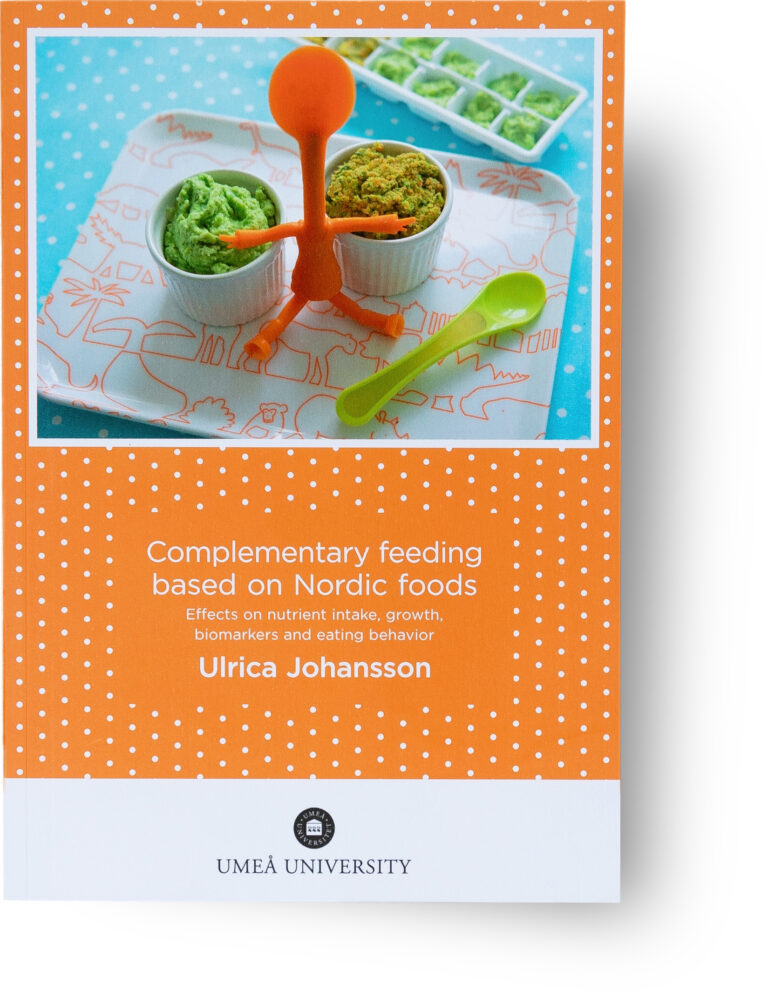Publications
The OTIS randomized controlled trial compared the effects of a protein-reduced, Nordic multicomponent diet intervention to the current complementary feeding regime on growth, metabolic markers, dietary intake and eating behavior from the initiation of complementary feeding at 4-6 months until 18 months of age. The novel research could pave the way to broadening the taste spectrum for infants and potentially provide an effective strategy for instilling healthier and sustainable eating habits early in life.
Dietary factors during infancy, including high protein intake, rapid carbohydrates and saturated fat, increase the risk of obesity, blood lipid disorders, type 2 diabetes and high blood pressure later in life. The taste, texture of supplementary food and how it is served is important for how and what the child eats.
New Nordic Diet, an initiative from the Nordic Council, emphasizes a greater intake of fruit, berries, vegetables, whole grain products, legumes, and less intake of sugar, salt, saturated fat, meat and meat products. Typical Nordic fruits include the lingonberry, buckthorn berry, cranberry, raspberry, and blueberry, as well as fibre-rich vegetables such as turnip, beets, swede, root celery, carrots, parsnip, cabbage, broccoli, cauliflower and kale.
The study found marked differences in the dietary habits of the infants in the two groups. Those on the New Nordic diet, who had been supplied with Nordic taste portion schedule of flavor learning, Nordic home-made baby food recipes, protein-reduced baby food products, and offered parental support via social media, consumed 42-45% more fruit and vegetables at 12-18 months of age, compared to those who were fed the conventional diet currently recommended by the Swedish Food Agency. There were no negative effects on breastfeeding duration, iron status or growth between the groups.
Both national and international media has been reported about The OTIS study. Ulrica Johansson presented during the session of “highest scoring abstracts” data from the OTIS study at the 54th Annual Meeting of the European Society of Paediatric Gastroenterology, Hepatology and Nutrition (ESPGHAN). ESPGHAN Annual Meeting attracts over 4,600 experts and key opinion leaders in the field of Paediatric Gastroenterology, Hepatology and Nutrition from 100 countries across Europe and all five continents, turning it into the largest conference of its kind worldwide.
The OTIS research team are from the Department of Clinical Sciences, Pediatrics, Umeå University, Umeå, Sweden, Department of Global Public Health, Karolinska Institutet and Centre for Epidemiology and Community Medicine, Stockholm County Council, Stockholm, Sweden and the Department of Nutrition, University of California, Davis, CA, USA.
My thesis: http://umu.diva-portal.org/smash/record.jsf?language=sv&pid=diva2%3A1609343&dswid=-2124
My publications: http://umu.diva-portal.org/smash/person.jsf?pid=authority-person%3A71136&dswid=-5919
MEDIA
https://www.thetimes.co.uk/article/babies-on-nordic-diet-learn-to-love-vegetables-spcc7wn80
https://www.umu.se/en/news/ulricas-projekt-om-smabarnsmat-far-stort-medialt-intresse_10328707/

